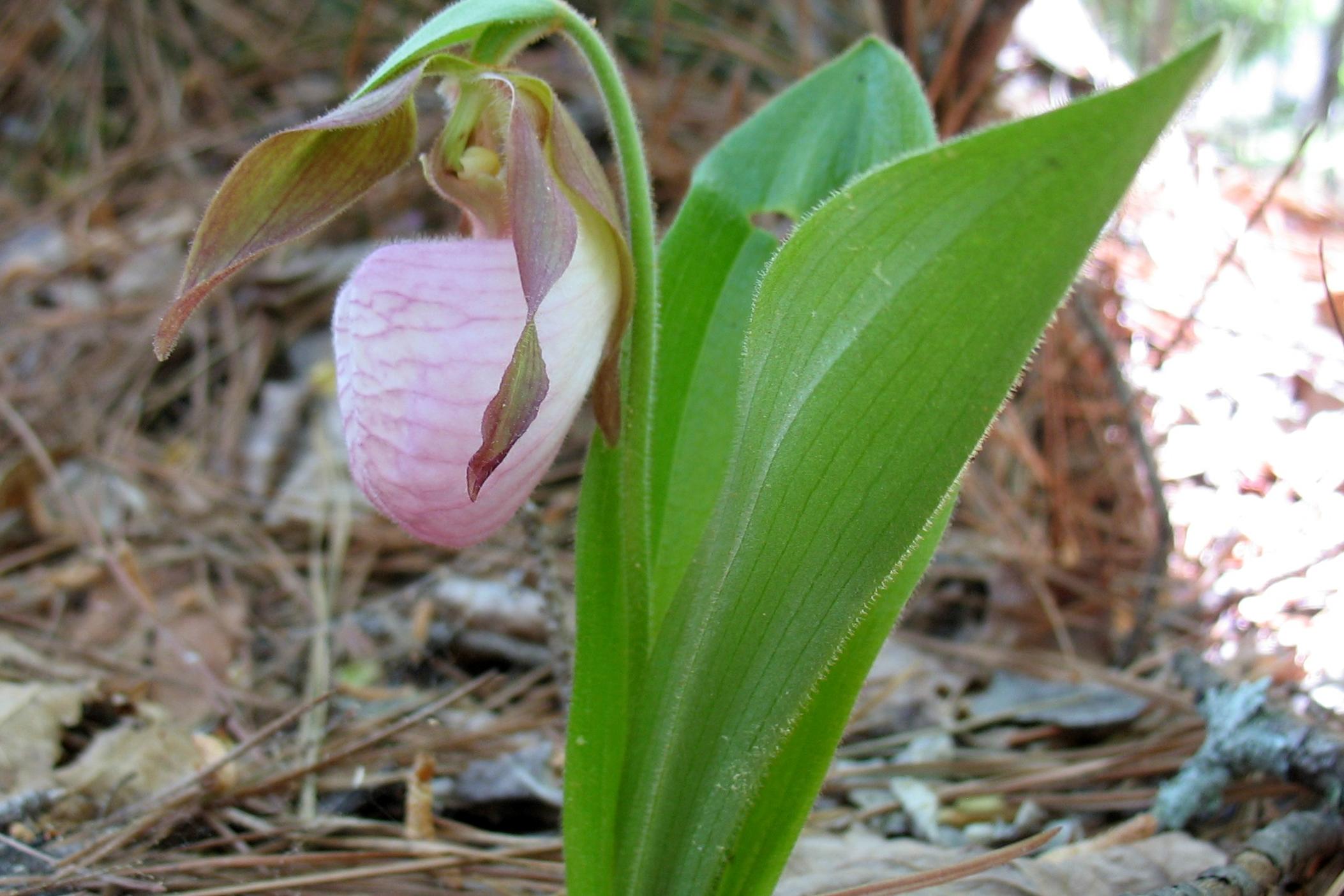Section Branding
Header Content
Over 1,000 Georgia pink lady's slipper orchids thrive after relocation
Primary Content
In early 2022, more than 1,000 pink lady's slipper orchids were moved from along Ga. Highway 400 to locations in Alpharetta after the Georgia Department of Transportation informed the Department of Natural Resources that land being used for road construction was home to flower populations.
The relocation was necessary because DNR botanists found that "a loss of that many orchids would significantly impact the species in the state," according to a press release earlier this year.
Pink lady's slippers orchids are known for their unique slipper shape and lower petals forming what can appear as a "hollow pouch." They are typically found throughout urban areas in North Georgia and the mountains, with about 100 populations in the state, according to Georgia DNR Wildlife Resources Division Senior Botanist Lisa Kruse.
"It's something that has a relatively large number of populations, and some of them are pretty big," she said. "Mostly, you see them in numbers of about 30, if you're lucky, 50."
The orchids thrive in North Georgia because the climate is perfect for getting a lot of moisture and growing on hillsides in the mountains.
"They need a certain amount of moisture, consistent moisture, a good amount of rainfall, and they don't like a lot of droughts, but they do expect dry periods and can tolerate that for a bit," Kruse said. "The rainfall here in Georgia is perfect for them, and we get much of that. They prefer to be a little bit on a slope rather than a whole flat area, so they like the hills and the foothills of the mountains."
Because the orchids are so attractive to many, they are a protected species in Georgia, which keeps them safe from people digging them up to poach and sell them.
According to the Wildlife Resources Division, relocating that many pink lady's slipper orchids in Alpharetta can be challenging because of the orchid's relationship with the "fungus of the Rhizoctonia genus in the soil." If someone had moved the orchids without the fungus, they would have perished, which would have had a drastic impact on their population in Georgia.
"Many orchids have a hard time moving because they have a particular relationship with the fungi and microorganisms in the soil," Kruse told GPB. They share their roots "with a fungus helps them break down nutrients in the soil, and they can't live without that fungus. If you disturb that too much, they won't be able to survive. You have to be careful to move a large amount of soil with each plant, and it's tough."
Relocating the orchids includes digging up soil with the plants and placing them in containers until they can be placed in a new location, Kruse explained.
"There's a pancake around the plant of soil that will go out from the plant by at least a foot," she said. "You have to dig up what we call a pancake shape of soil with it and carefully lift it with people and a shovel into a cardboard box or some other flat surface to keep the roots intact with their soil."
Kruse continued: "Then we take those boxes, bring them to a place with a similar soil type and other similar plant species and put them there. We move the surface of the soil in the receiving spot and then gently lift the pancake with the pink lady's slipper in it and put it into the new location right on the surface without disturbing any of the soil around those roots."
DNR, with the help of Georgia Native Plant Society volunteers, transplanted the orchids in several safe locations across primarily North Georgia.
"We chose to try to keep them relatively close to their original population, but at the same time, we did want to move them to a few different spots in case one didn't work," Kruse said. "We moved some orchids a little bit south down towards Chattahoochee Bend State Park, and we moved some north to Dawson Forest Wildlife Management Area."
Botanists and volunteers also moved pink lady's slipper orchids to the University of North Georgia, "where botany students planted relocated orchids on university land," according to the DNR Wildlife Resources Division.
"The staff there and the students at the college are involved, and they will be helping us monitor the plants," Kruse said.
Kruse says that projects like this relocation of pink lady's slippers are important to talk about because people need clarification about the care given to natural resources when land is under development.
"A lot of times, people see that the land is under development, and it can be frustrating. They think, 'Is anybody looking after the natural resources?' and that we aren't doing the best we can," she said. "The Department of Transportation, unbeknownst to most people, are required to look for all other species they're impacting and develop plans to do the best they can to protect them."
In the meantime, pine hardwood forests would be your best option if you're looking to spot pink lady's slipper orchids around the northern counties.


